Julia Keller and John Hackworth cite their undergraduate education at Marshall as the foundation for their award-winning success.
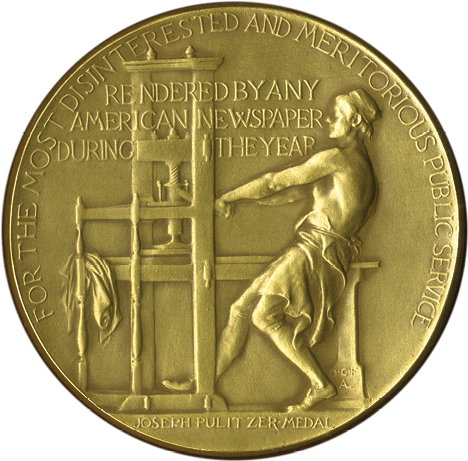
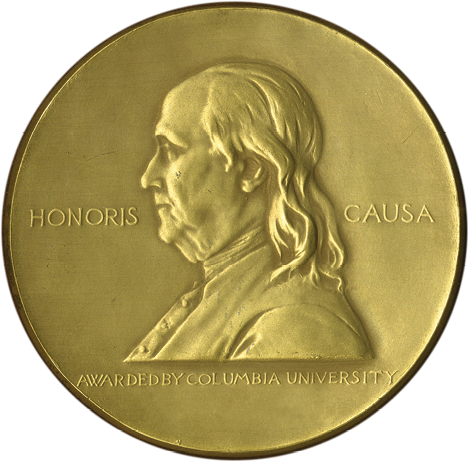 The archive of Pulitzer Prize winners includes the likes of John Steinbeck, Robert Frost, Pearl Buck, Carl Bernstein, Neil Simon, Arthur Miller, Alex Haley, George Will and a host of other iconic names in the world of journalism, literature and musical composition. Today, the names of Marshall’s own Dr. Julia Keller and John Hackworth can be added to this prestigious ledger. Keller won the award in 2005 for feature writing while Hackworth was honored in 2016 for editorial writing. The story of how these two Marshall grads rose through the ranks to capture the most coveted award in their profession is one defined by talent, dedication and the desire to make a difference in the lives of others.
The archive of Pulitzer Prize winners includes the likes of John Steinbeck, Robert Frost, Pearl Buck, Carl Bernstein, Neil Simon, Arthur Miller, Alex Haley, George Will and a host of other iconic names in the world of journalism, literature and musical composition. Today, the names of Marshall’s own Dr. Julia Keller and John Hackworth can be added to this prestigious ledger. Keller won the award in 2005 for feature writing while Hackworth was honored in 2016 for editorial writing. The story of how these two Marshall grads rose through the ranks to capture the most coveted award in their profession is one defined by talent, dedication and the desire to make a difference in the lives of others.
Born and raised in Huntington, Julia Keller’s ties to Marshall can be traced back to her days as a young girl when she would accompany her father, mathematics professor Dr. James Keller, to his office in Smith Hall. There she would sit on the floor and write short stories, mysteries and novels. She went on to study English at Marshall and earned her degree in 1976 after just three years. She then worked as a reporter for the Ashland Daily Independent before returning to Marshall where she earned her master’s in English in one year.
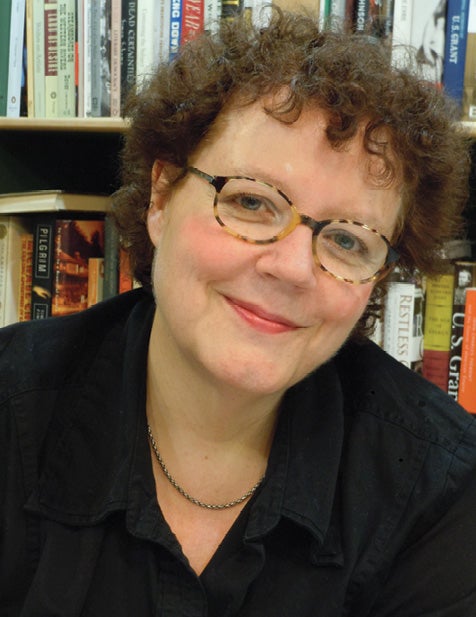 “I feel very fortunate for my education at Marshall,” Keller said recently. “There were amazing professors in the English Department when I was there — Bill Sullivan, Eric Thorn, Len Deutsch, Warren Wooden, Phillip Pittman. Looking back, I realize that my education at Marshall was equal to or superior to an education I could get anywhere.”
“I feel very fortunate for my education at Marshall,” Keller said recently. “There were amazing professors in the English Department when I was there — Bill Sullivan, Eric Thorn, Len Deutsch, Warren Wooden, Phillip Pittman. Looking back, I realize that my education at Marshall was equal to or superior to an education I could get anywhere.”
Keller moved to Columbus, Ohio, to begin working for The Columbus Dispatch and, in her spare time, earned a doctoral degree in English literature at Ohio State. She then applied for and was awarded a Neiman Fellowship at Harvard. Only 24 journalists from around the world are accepted into this prestigious program, which allows participants to spend a year on campus auditing any class that piques their interest.
After her year at Harvard, Keller accepted a position with The Chicago Tribune. Six years into her tenure at the paper, she was working mainly as a book critic when a deadly tornado swept through the small, nearby town of Utica, Illinois. Because the paper was short-staffed at the time, Keller was asked to cover the disaster.
“I didn’t really want to do the story,” Keller recalls. “But after driving to Utica and talking with the survivors, I convinced my editor that the piece would work better as a series. And so, I went back to Utica again and again and began weaving a story out of the recollections of the people affected. In the end, it wasn’t a series so much about a tornado, but an exploration of how we reckon with the randomness of fate.”
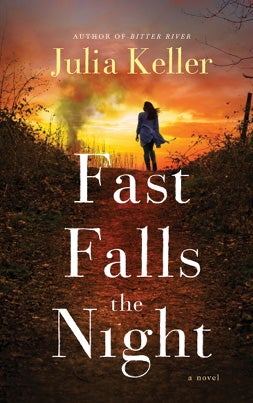 In 2005 Keller was awarded the Pulitzer Prize for Feature Writing for her three-part series on the Utica disaster. The Pulitzer Board described her coverage of the tornado as a “gripping, meticulously reconstructed account of a deadly 10-second tornado.”
In 2005 Keller was awarded the Pulitzer Prize for Feature Writing for her three-part series on the Utica disaster. The Pulitzer Board described her coverage of the tornado as a “gripping, meticulously reconstructed account of a deadly 10-second tornado.”
Keller’s life would change dramatically after winning the award. She would go on to teach at Princeton, Notre Dame and the University of Chicago. She also tried her hand at writing books. Her first was a non-fiction effort entitled Mr. Gatling’s Terrible Marvel: The Gun That Changed Everything and the Misunderstood Genius Who Invented It. But what she really longed to do was write fiction. She then found an agent and published Back Home, a young adult novel about a girl whose father suffers a traumatic brain injury while serving with the National Guard in Iraq. Next came the Bell Elkins mystery series (loosely based on Guyandotte, West Virginia) that chronicles a woman’s return to Appalachia and the mysteries that abound in her hometown.
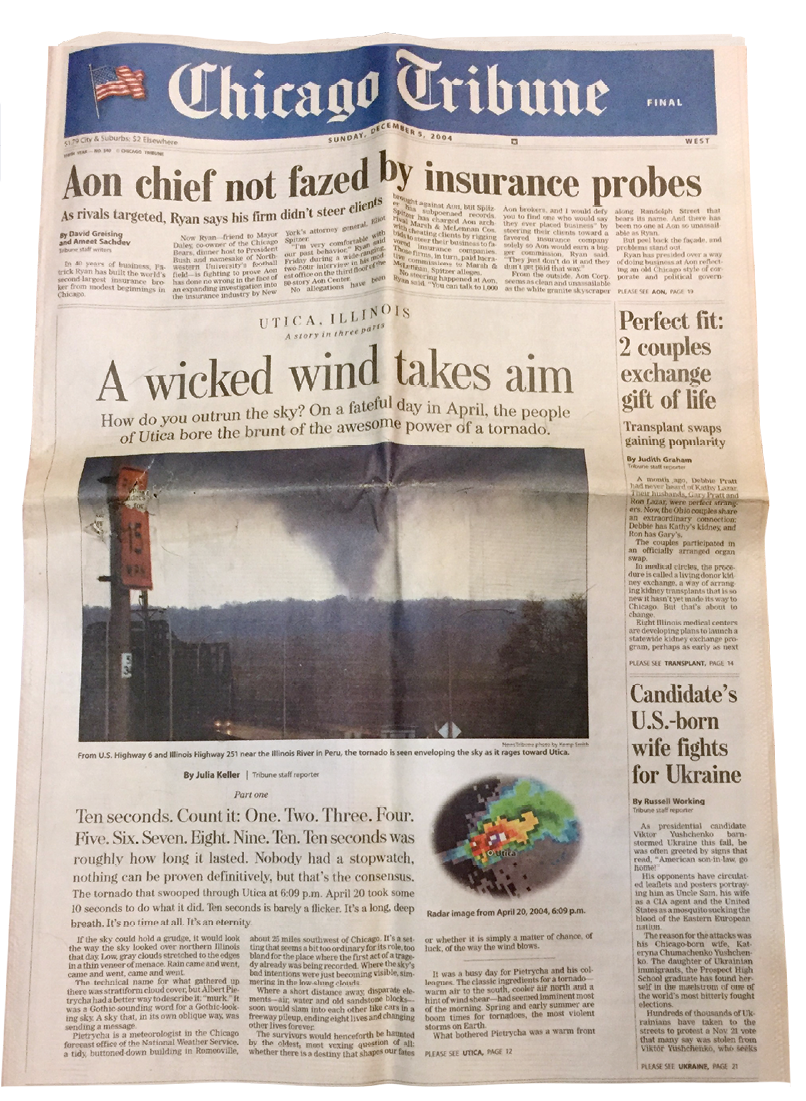 What’s next for Keller? She released her sixth installment in the Bell Elkins series, Fast Falls The Night, on Aug. 22 and will be doing a bevy of promotional events, readings and signings for the book. And in November the first volume of a science fiction trilogy for young adults, The Dark Intercept, will be released.
What’s next for Keller? She released her sixth installment in the Bell Elkins series, Fast Falls The Night, on Aug. 22 and will be doing a bevy of promotional events, readings and signings for the book. And in November the first volume of a science fiction trilogy for young adults, The Dark Intercept, will be released.
Like Keller, John Hackworth was born and raised in Huntington. A product of the university’s School of Journalism and Mass Communications, he was a sports reporter for The Parthenon and in his spare time worked at The Herald-Dispatch. He cites the education he received at Marshall as the foundation for much of his professional success.
“I had so many great teachers. Bill Francois was head of the journalism department,” Hackworth recalls. “He was a tough guy but he was so good and taught us so much. I had a class with Page Pitt. He taught me about ethics in journalism, lessons I have never forgotten that have played a key role in my career. There was Simon Perry, who taught politics. He was something else — another tough professor that made an impression on me about how to carry yourself. And there was Samuel Habel, who taught sociology. I couldn’t wait to go to his class. He broadened our scope of how we viewed the world.”
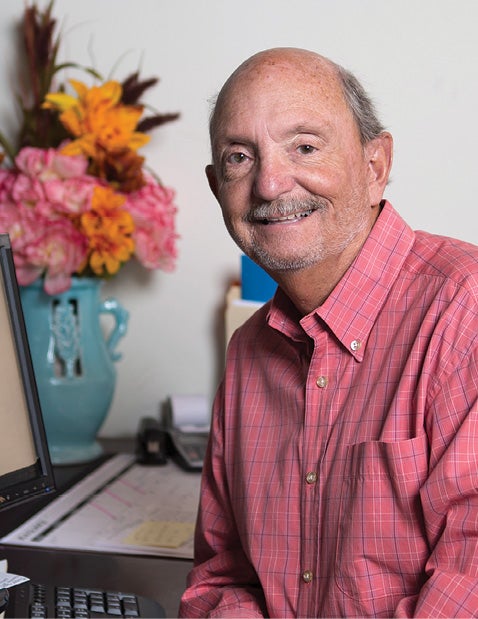 Hackworth earned his degree in 1971, a particularly dark period for both the school and the community.
Hackworth earned his degree in 1971, a particularly dark period for both the school and the community.
“I was at a small party at a friend’s apartment when we heard the news of the plane crash,” Hackworth recalls. “My first thought was about Mike Brown, a colleague of mine at The Herald-Dispatch who had traveled to East Carolina to cover the game. I rushed over to the newspaper’s offices to find out if he had been on the plane. Fortunately, he had driven to the game. It was just a horrible time and so many good people were lost.”
Hackworth’s first job after graduating was at The Herald-Dispatch working for the legendary Ernie Salvatore. Next up was the Ashland Daily Independent where he would spend 15 years writing mainly about sports. He then accepted a job with a Knight-Ridder newspaper in Myrtle Beach, South Carolina, and it was there he transitioned into news reporting. Eight years later he landed at the Charlotte Sun newspaper in Port Charlotte, Florida, where he would eventually rise to the position of editor. And it was here he would write a series of editorials about the suspicious death of a prisoner at the Charlotte Correctional Institute that would garner him the Pulitzer Prize.
“Whenever someone would die in the local prison we could never get any answers about what happened,” Hackworth explains. “In one particular case a prisoner was beaten to death by the guards and it became clear to us that there was a cover-up. Our reporter, Adam Kreger, did some great investigating to find out what really happened. We learned that the guards had washed all the blood off their boots and cleaned up the crime scene before reporting the death.”
The newspaper’s series of stories and editorials put pressure on the District Attorney’s office and eventually a grand jury was convened. Unfortunately, they chose not to indict any of the guards.
“But then we got a real break when one of the members of the grand jury called us and said, ‘I’ve been reading your stories and editorials and I can’t stay silent any longer. One of the state attorneys told us not to bother to indict because they could never get a conviction.’ We broke that story and just kept pounding and pounding in our editorials,” Hackworth explains. “The guards started dropping like flies and eventually all of them either resigned or were fired.”
In 2016 Hackworth and colleague Brian Gleason (who wrote three of the eight editorials about the Charlotte Correctional Institute cover-up) were awarded the Pulitzer Prize for Editorial Writing. The Pulitzer Board noted that they were being honored “for fierce, indignant editorials that demanded truth and change after the deadly assault of an inmate by corrections officers.” They also noted that the editorials “fanned the flames with locals who were stunned by the apparent lack of concern by authorities over this brutal death.”
Hackworth says winning the award hasn’t changed his life much, but jokes the reporters in the newsroom might listen to him a little more these days.
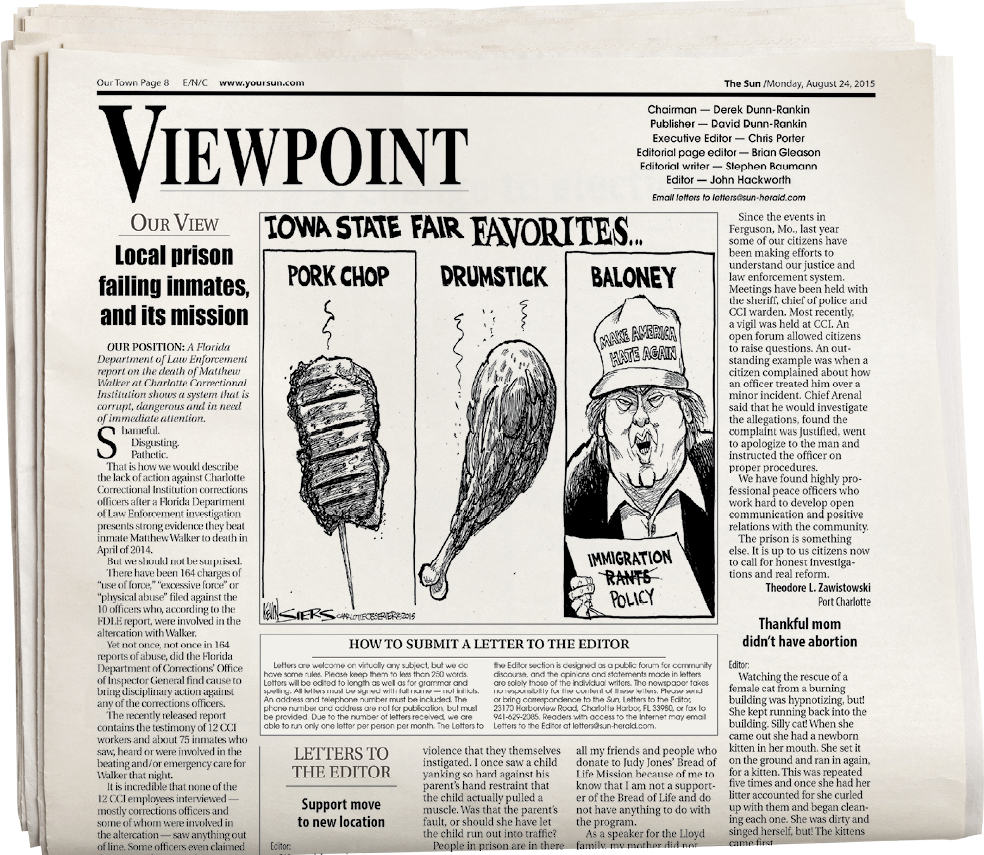 “I’m proud at my age to accomplish something before I retired,” he reflects. “My kids can look at this one day and tell their children, ‘This was your grandfather.’ That’s kind of cool. But what meant more to me than winning the Pulitzer was what happened after the ceremony. As we were leaving the building on the Columbia University campus, there were a couple hundred students lining the sidewalk who began to clap and cheer. That was something I will never forget.”
“I’m proud at my age to accomplish something before I retired,” he reflects. “My kids can look at this one day and tell their children, ‘This was your grandfather.’ That’s kind of cool. But what meant more to me than winning the Pulitzer was what happened after the ceremony. As we were leaving the building on the Columbia University campus, there were a couple hundred students lining the sidewalk who began to clap and cheer. That was something I will never forget.”
Having achieved a major milestone in their careers, Keller and Hackworth are not resting on their laurels. Keller continues to write fiction at a frenetic pace while Hackworth continues to pursue injustice in the community his newspaper serves. Their advice for aspiring writers and journalists is straightforward.
“Read everything from billboards to newspapers to books,” Keller says. “And enter every writing contest you can find. There’s an abundance of contests out there for young writers. And, of course, write all the time. It doesn’t matter what it’s about, just keep writing.”
“Don’t do it for the money,” Hackworth says. “If you feel strongly that you want to make a difference, that you want to make the world a better place, then go into journalism. Today, with so much ‘fake news’ and digital media, people think newspapers aren’t relevant, but they are. We try every day to make a difference. And you can really do that through the power of the written word.”
Jack Houvouras is the publisher of Marshall Magazine.
Photos: (From top) The Pulitzer Prize is among the most well-known awards in journalism. Born and raised in Huntington, West Virginia, Julia Keller’s father was a mathematics professor at Marshall. Julia Keller released Fast Falls The Night on Aug. 22, the sixth installment in her Bell Elkins series. Julia Keller’s Pulitzer Prize winning series began on the front page of the Chicago Tribune on Sunday, Dec. 5, 2004. John Hackworth, who currently writes for the Charlotte Sun in Port Charlotte, Florida, began his career in journalism as a sports reporter for The Parthenon. (Photo by Tom O’Neill.) John Hackworth won a Pulitzer Prize for questions he raised about corruption in the local prison administration in a series of editorials he penned for the Charlotte Sun.
